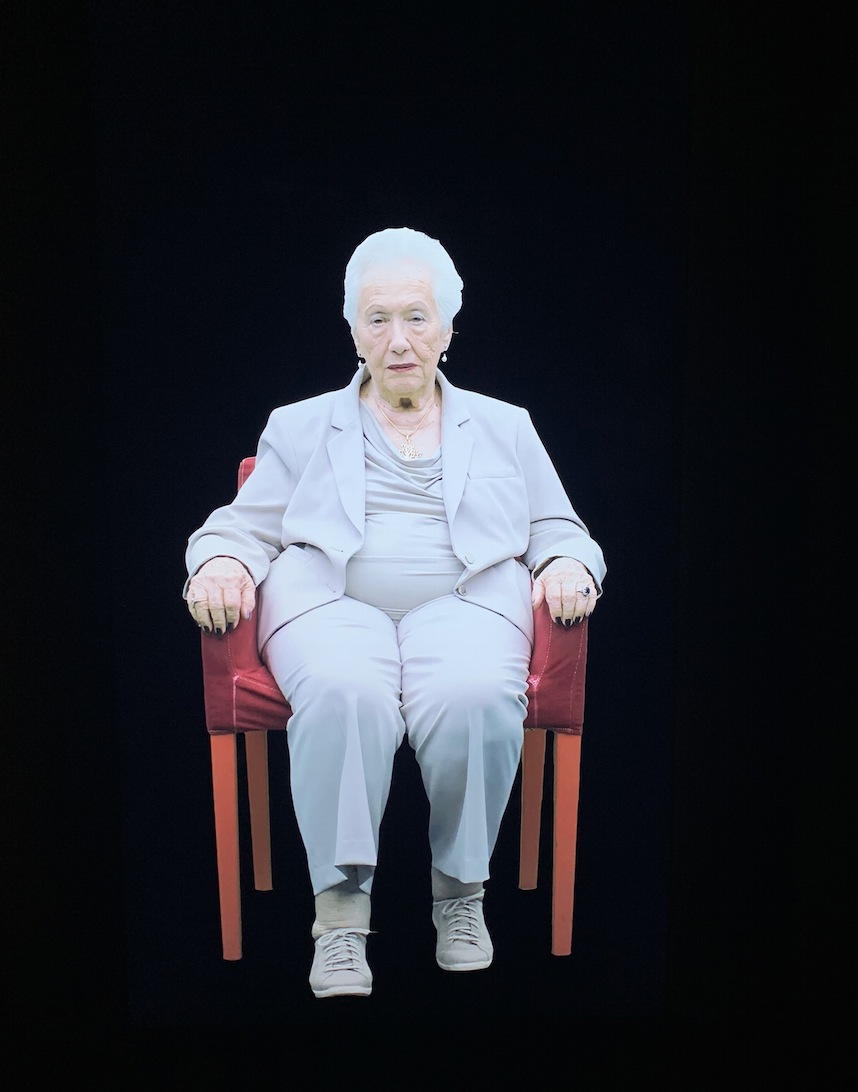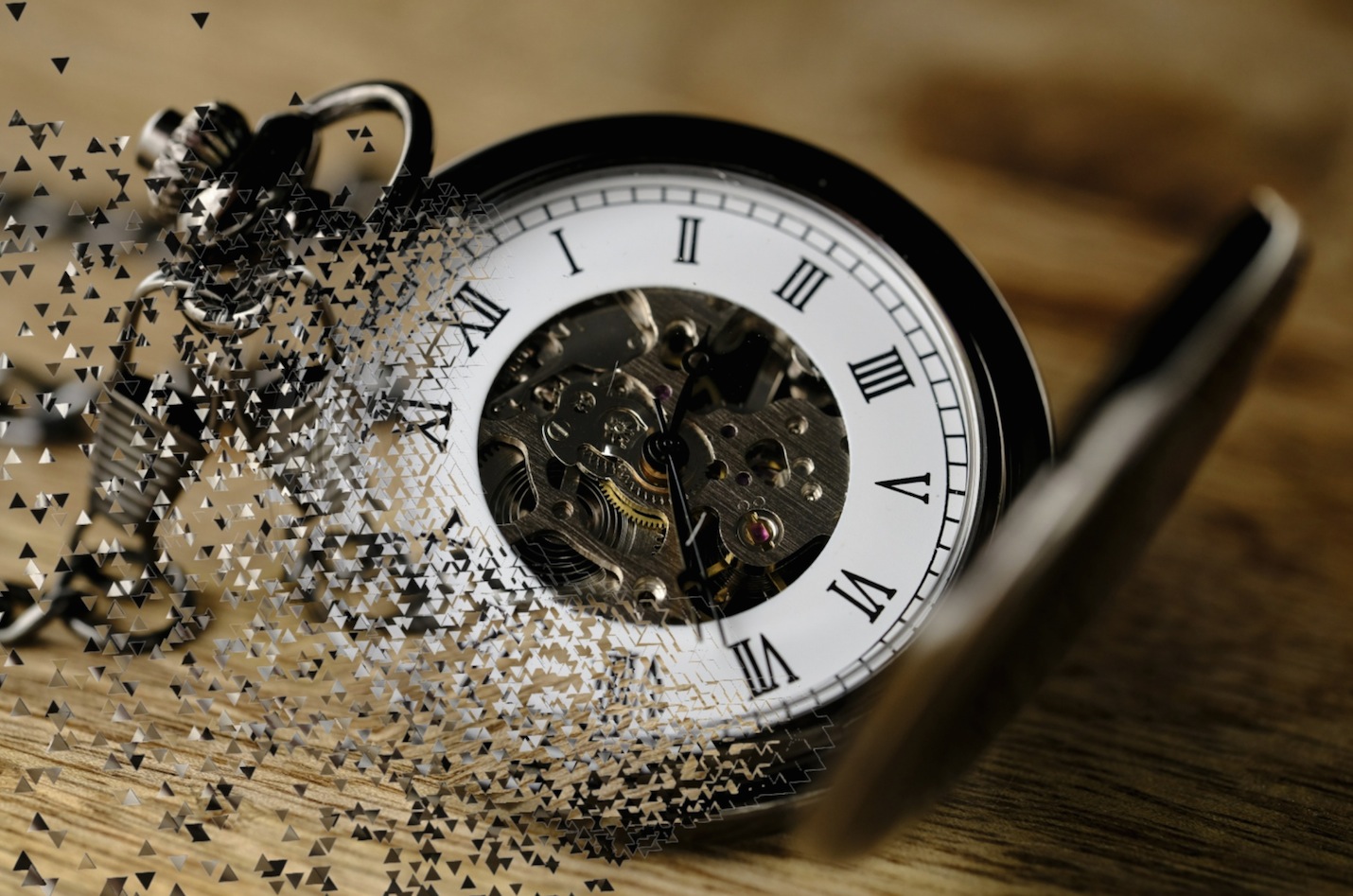Firestone, a former museum board member, has been a dedicated speaker at the museum. Born Renee Weinfeld in 1924 in Uzhgorod, Czechoslovakia, she is a survivor of Auschwitz and a death March. Firestone and other prisoners were liberated by the Russians in 1945. After the war, Renee returned to Prague where she got married and had a daughter. The Firestones moved to the United States in 1948, and Renee became a successful couture fashion designer whose pieces are now part of LACMA’s permanent collection. She has been honored with a leadership award by the United States Holocaust Memorial Museum and has appeared in several Holocaust documentaries.
Fréquence Juive and Renée, virtual face to face, exclusive interview, here we go !
Firestone, a former museum board member, has been a dedicated speaker at the museum. Born Renee Weinfeld in 1924 in Uzhgorod, Czechoslovakia, she is a survivor of Auschwitz and a death March. Firestone and other prisoners were liberated by the Russians in 1945. After the war, Renee returned to Prague where she got married and had a daughter. The Firestones moved to the United States in 1948, and Renee became a successful couture fashion designer whose pieces are now part of LACMA’s permanent collection. She has been honored with a leadership award by the United States Holocaust Memorial Museum and has appeared in several Holocaust documentaries.
Fréquence Juive and Renée, virtual face to face, exclusive interview, here we go !

| Fréquence Juive : «? Do you believe in G-d ?? » Renée Firestone : «? G-d is something to me that is only something I imagine. And G-D is a Creator of the universe. I cannot imagine Him as a human being. So I don’t think about the image of G-d. I just think of this power that created us and created everything around us.? » Fréquence Juive : «? Do you hate Germans ?? » Renée Firestone : «? I do not use the word hate and I don’t judge people collectively. There was some nazis, that I … disliked or wished they were not born but umm I don’t judge collectively i dont think all germans were bad or all germans will kill us … so I, I judge people individually what i know about them what i feel about them? » «? I do not use the word hate and I don’t judge people collectively? ». | Fréquence Juive : «? Do you believe in G-d ?? » Renée Firestone : «? G-d is something to me that is only something I imagine. And G-D is a Creator of the universe. I cannot imagine Him as a human being. So I don’t think about the image of G-d. I just think of this power that created us and created everything around us.? » Fréquence Juive : «? Do you hate Germans ?? » Renée Firestone : «? I do not use the word hate and I don’t judge people collectively. There was some nazis, that I … disliked or wished they were not born but umm I don’t judge collectively i dont think all germans were bad or all germans will kill us … so I, I judge people individually what i know about them what i feel about them? » «? I do not use the word hate and I don’t judge people collectively? ». |
| Fréquence Juive : «? What did you bring to Auschwitz ?? » Renée Firestone : “ Well, they told us, you know, the size of the suitcase and the space in the suitcase…, it was very small. So, I knew I was going to need underwear and I knew I was going to be wearing the same dress or outfit for a long time, so we took very little. I remember taking a brush and a comb and I knew I would need underwear. But most of all I remember that I really wanted to take a bathing suit with me, a bathing suit that my father had brought me from one of his business trips a few years earlier. And, uh… I was a huge fan of this swimsuit for so many reasons. First of all it was a nice set, it was made of a fabric we hadn't seen before, it was a stretchy fabric - with a nice print on it. And I was holding this bathing suit trying to put it in the suitcase, and I remembered: I was maybe 16 when my father gave it to me; and how I wore it in the pool. | Fréquence Juive : «? What did you bring to Auschwitz ?? » Renée Firestone : “ Well, they told us, you know, the size of the suitcase and the space in the suitcase…, it was very small. So, I knew I was going to need underwear and I knew I was going to be wearing the same dress or outfit for a long time, so we took very little. I remember taking a brush and a comb and I knew I would need underwear. But most of all I remember that I really wanted to take a bathing suit with me, a bathing suit that my father had brought me from one of his business trips a few years earlier. And, uh… I was a huge fan of this swimsuit for so many reasons. First of all it was a nice set, it was made of a fabric we hadn't seen before, it was a stretchy fabric - with a nice print on it. And I was holding this bathing suit trying to put it in the suitcase, and I remembered: I was maybe 16 when my father gave it to me; and how I wore it in the pool. |
| «? I just think of this power that created us and created everything around us? » | «? I just think of this power that created us and created everything around us? » |
| And how the boys listened to me. All those memories came flooding back when I was holding that bathing suit. And I knew I had to take it with me, I knew that if I got in trouble, or if I was sick, all I had to do was look at that bathing suit, so I would remember all these wonderful moments… But there was no choice, the bathing suit was very small, and already packed. So I went into the bathroom, and I put the bathing suit on, under my dress, and that's how I left. » USC Shoah Foundation* ’s “Dimensions in Testimony”, giving visitors the only opportunity in Los Angeles to have a virtual “one-on-one” conversation with a Holocaust survivor. Holocaust Museum LA is now accepting advance reservations for “Dimensions in Testimony.” For additional information, visit Holocaust Museum website. USC Shoah Foundation* was established in 1994 by Steven Spielberg to collect and preserve the testimonies of survivors and other witnesses of the Holocaust. "And we heard the cries and cries of those people they were killing". | And how the boys listened to me. All those memories came flooding back when I was holding that bathing suit. And I knew I had to take it with me, I knew that if I got in trouble, or if I was sick, all I had to do was look at that bathing suit, so I would remember all these wonderful moments… But there was no choice, the bathing suit was very small, and already packed. So I went into the bathroom, and I put the bathing suit on, under my dress, and that's how I left. » USC Shoah Foundation* ’s “Dimensions in Testimony”, giving visitors the only opportunity in Los Angeles to have a virtual “one-on-one” conversation with a Holocaust survivor. Holocaust Museum LA is now accepting advance reservations for “Dimensions in Testimony.” For additional information, visit Holocaust Museum website. USC Shoah Foundation* was established in 1994 by Steven Spielberg to collect and preserve the testimonies of survivors and other witnesses of the Holocaust. "And we heard the cries and cries of those people they were killing". |
| “When we were in cattle cars, my brother was no longer with us. The trip to Auschwitz was horrible, the train car was packed and we had very little room to breathe. There was an overflowing seal that must have been our sanitary jar, which made the smell even more suffocating. There was no distribution of food or water for more than three days. At night, the train stopped and the Nazis banged on the walls shouting that whoever hid valuables or money would be shot immediately. And we heard the cries and cries of those people they were killing. I remember this old lady who cried in front of her family medallion from which she had to part to avoid being killed. » Copyright : RENEE FIRESTONE - USC SHOAH FOUNDATION . | “When we were in cattle cars, my brother was no longer with us. The trip to Auschwitz was horrible, the train car was packed and we had very little room to breathe. There was an overflowing seal that must have been our sanitary jar, which made the smell even more suffocating. There was no distribution of food or water for more than three days. At night, the train stopped and the Nazis banged on the walls shouting that whoever hid valuables or money would be shot immediately. And we heard the cries and cries of those people they were killing. I remember this old lady who cried in front of her family medallion from which she had to part to avoid being killed. » Copyright : RENEE FIRESTONE - USC SHOAH FOUNDATION . |

























